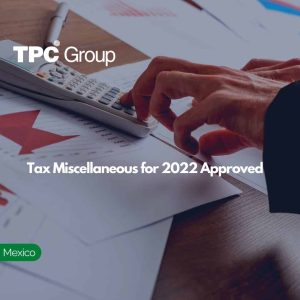Updating of the Brazilian Transfer Pricing Regulation
The Brazilian Transfer Pricing regulations were recently updated to align them with the international standards and recommendations of the Organization for Economic Cooperation and Development (OECD), specifically adopting the Arm’s Length Principle to which controlled transactions must be regulated. This article will address the Brazilian regulations regarding the aforementioned controlled transaction.
The OECD Guidelines define related party transactions or controlled transactions as those performed between two enterprises associated with each other. Likewise, the OECD refers to these transactions in the application of the Arm’s Length Principle, which compares the terms of a controlled transaction with those agreed upon between independent enterprises entering into a comparable transaction in comparable circumstances.
Definition and Scope of Controlled Transactions
Accordingly, on June 14, 2023, the Brazilian legislation enacted Law No. 14596, which establishes that a controlled transaction comprises any commercial or financial relation between two or more related parties, directly or indirectly established or carried out, including contracts or arrangements under any form and series of transactions.
Subsequently, the Secretariat of the RFB (Receita Federal do Brasil – Internal Revenue of Brazil/Brazilian IRS) issued Normative Instruction No. 2161, which regulates the new Transfer Pricing regime for transactions between Brazilian companies and related parties abroad.
In this regard, Article 3, section II of Controlled Transactions of the aforementioned instruction states that a “transaction” comprises any commercial or financial relation, including practices, interpretations, actions, or omissions, regardless of whether they are or are intended to be legally enforceable and the terms and conditions of such transaction are formally documented. Likewise, it states that a “series of transactions” includes the reference to more than one transaction performed regarding the same contract or agreement, either performed in sequence or not, and an “agreement” includes any structure, transaction, or agreement of any kind.
Types of Controlled Transactions
Accordingly, the aforementioned article specifies the different controlled transactions:
- Transaction involving tangible goods, including merchandise;
- Transaction involving intangibles;
- Services of any kind;
- Cost-sharing contracts;
- Business restructuring, including termination or renegotiation of commercial or financial relations;
- Financial transactions, including debt transactions, intra-group guarantees, centralized treasury management contracts, and insurance contracts;
- Transactions for disposal or transfer of assets, including shares and other interests, even if they are given in return on capital or underwriting transactions;
- Any sale, assignment, loan, lease, concession, advance, and contribution.
Definition Broadening
On the other hand, Law No. 9430 also considers a controlled transaction to be transactions carried out by an individual or legal entity resident or domiciled in Brazil with any entity resident or domiciled in a country that does not tax income or that taxes it at a maximum rate lower than 17% or that is the beneficiary of a privileged tax regime, even if an unrelated party.
Finally, Normative Instruction RFB No. 2161 establishes that if the total value of the taxpayer’s controlled transactions is greater than or equal to R$ 500,000,000.00 (five hundred million reais) before the Transfer Pricing adjustments, the taxpayer must file a local report return.
Obligations of Taxpayers
In conclusion, the recent update of the Brazilian Transfer Pricing regulations aligns the country with the OECD international standards, especially the Arm’s Length Principle. Law No. 14596 defines controlled transactions as those among related parties, while the RFB’s Normative Instruction No. 2161 regulates this regime. Different types of controlled transactions are detailed, from tangible and intangible goods to services and financial transactions. Law No. 9430 broadens the definition, including transactions with entities in tax havens. In this regard, taxpayers must annually evaluate if they file the local report return.



